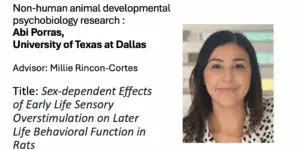ISDP Board Nominations Deadline October 20th
Dear ISDP Member,
This is a call for nominations to fill our upcoming vacancies on the Governing Board. You are encouraged to nominate yourself or any of your fellow associates by Monday, October 20, 2025.
Please upload a pdf or Word document with the name and contact information of your nominee (self nomination is encouraged) to include e-mail address and a short bio and profile picture, about the individual for the online election ballot. If nominating others, the application must also include confirmation from the nominee that they would accept the nomination and consent to be on the 2025 Board ballot. The Secretary will coordinate an electronic ballot for the membership and the nominees with the most votes will be elected.
Please use this official online form and submit nominations by Monday, October 20, 2025. All recommendations will be kept confidential.








